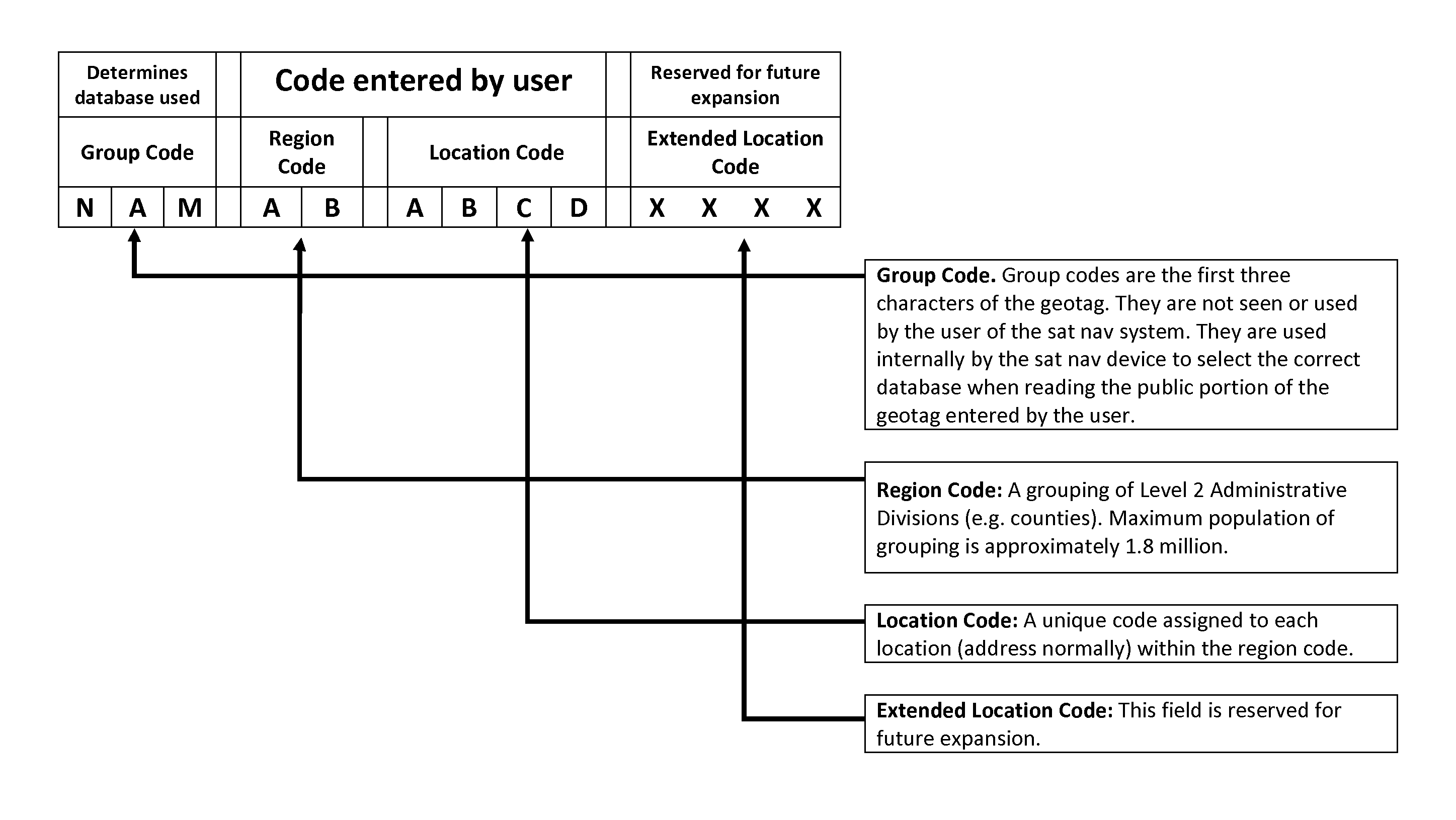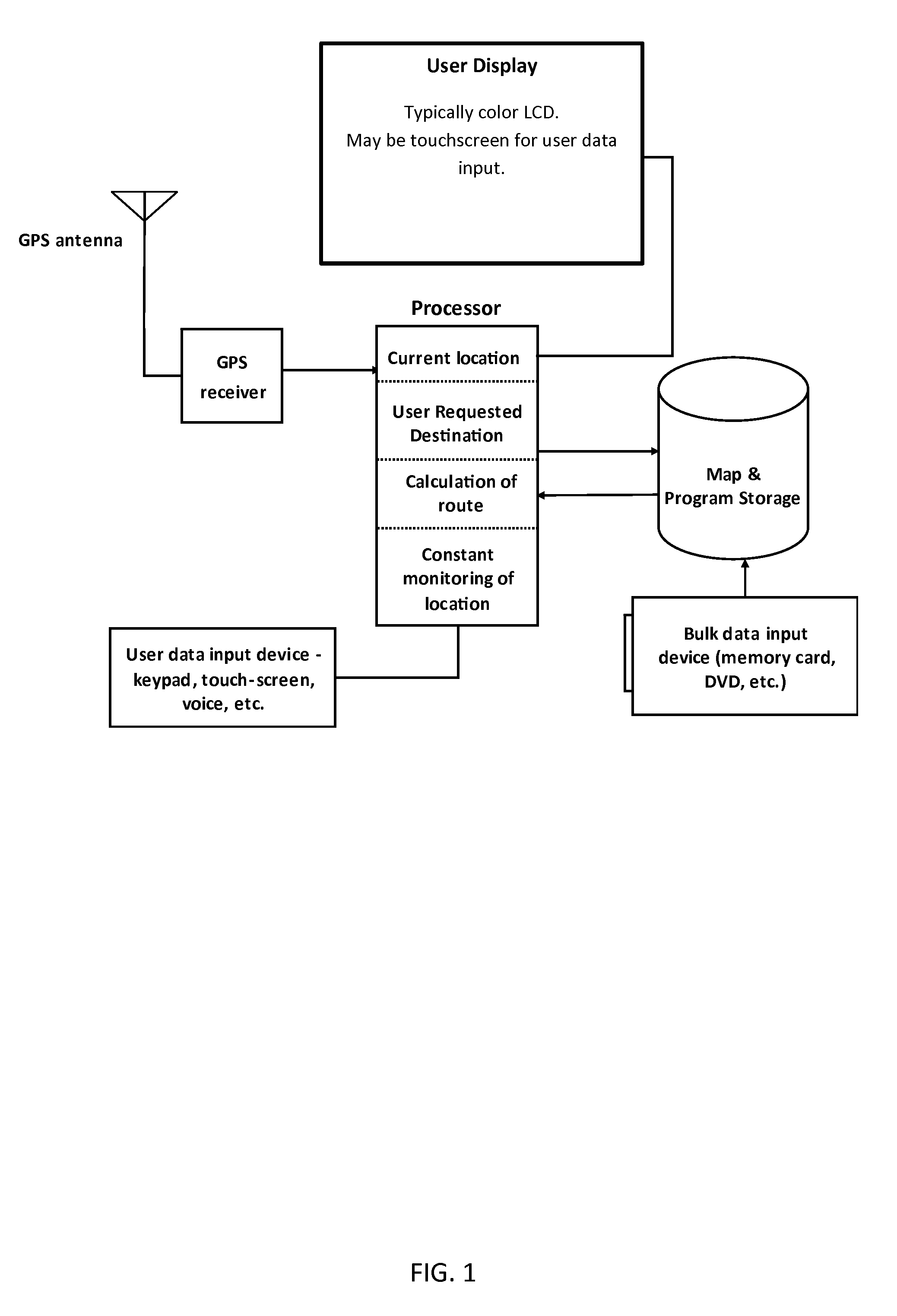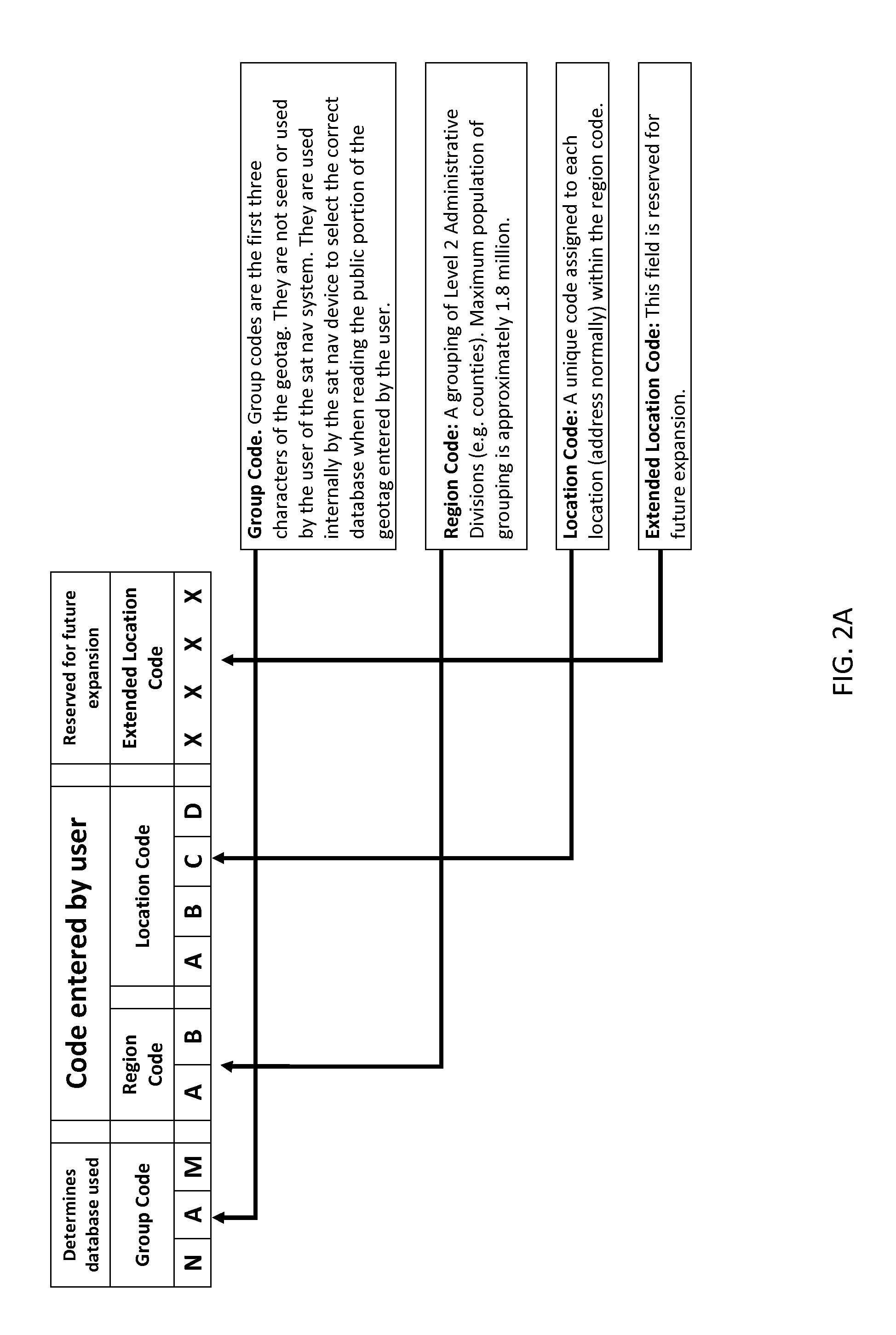Coding system for satellite navigation system
a satellite navigation and coding technology, applied in the field of georeferencing systems, can solve the problems of difficult human work, large number of characters, and more expensive means of identifying each address relative to other address estimation methods, so as to improve accuracy, increase accuracy, and increase the degree of location accuracy
- Summary
- Abstract
- Description
- Claims
- Application Information
AI Technical Summary
Benefits of technology
Problems solved by technology
Method used
Image
Examples
Embodiment Construction
[0121]FIG. 1 depicts the components of a typical satnav system. A typical satnav device has a user display, a processor to run software which operates the satnav device, a user data input device such as an touchscreen keypad, a bulk data input device such as a memory card, map and program storage comprising read only memory (ROM) for the software running the satnav system and random access memory (RAM) to store user entered data and working data, a power supply (not depicted) which may be an internal battery or an external power source such as an automotive electrical system, and a GPS receiver which receives location information from a GPS satellite network (not depicted) via a GPS antenna. The satnav device could be a personal GPS system, or an application that runs on a smartphone, tablet, or other like device.
[0122]When the GPS receiver is activated, the GPS receiver receives radio signals via the GPS antenna. This allows the GPS Receiver to determine where it is on the surface ...
PUM
 Login to View More
Login to View More Abstract
Description
Claims
Application Information
 Login to View More
Login to View More - R&D
- Intellectual Property
- Life Sciences
- Materials
- Tech Scout
- Unparalleled Data Quality
- Higher Quality Content
- 60% Fewer Hallucinations
Browse by: Latest US Patents, China's latest patents, Technical Efficacy Thesaurus, Application Domain, Technology Topic, Popular Technical Reports.
© 2025 PatSnap. All rights reserved.Legal|Privacy policy|Modern Slavery Act Transparency Statement|Sitemap|About US| Contact US: help@patsnap.com



